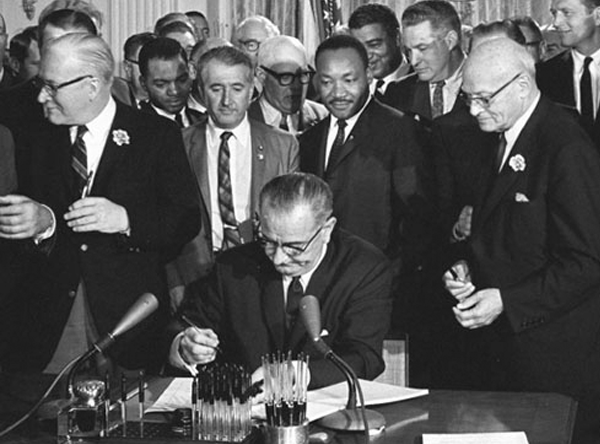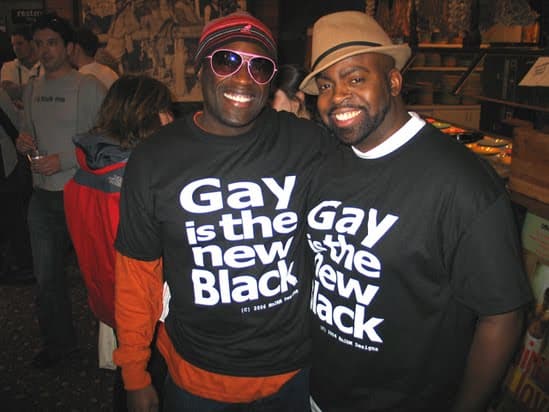1. Abortion
Unfortunately, the silence of the Black Church on the issue of abortion is nothing new, particularly when it comes to the rate of abortion within the communities of the very people who make up those churches. Even Civil Rights icon, the Rev. Dr. Martin Luther King, Jr., was a supporter of Planned Parenthood, having been presented in 1966 with the organization’s highest honor, the Margaret Sanger Award, despite Sanger’s eugenicist vision of completely ridding society of blacks under the guise of “family planning.”
The website CNSNews.com recently reported that in New York City more black children are aborted than are born. According to LifeNews.com, nearly 80 percent of Planned Parenthood clinics are located in black and Hispanic neighborhoods – which is by design – not to mention the increasing numbers of black children being raised in single-parent homes. Given these statistics, one would think that such daunting realities as these would be more than enough to warrant the Black Church speaking out on the issue or abortion and its damaging effects. However, its pulpits continue to be moot on the subject.
The question is, “Why?”
More than 13 million black babies have been aborted in the United States since the Roe v. Wade decision in 1973.
Where is the collective conscience of the Black Church on this issue?
If there is one.
2. Education
Black parents are no different than any others when it comes to wanting the best possible opportunities for their children; and those opportunities are rooted first and foremost in a good education. As an issue, most blacks favor school choice and the rights of parents to make the decisions about where and how their children should be educated.
With this in mind, it may surprise you to learn there is a growing movement among black families to homeschool their children; a movement one would think would be encouraged, if not initiated, by Black Church leaders. But, as with abortion, these leaders are virtually silent on the matter, even though many black churches are located in poor neighborhoods that are populated with low-performing public schools.
Again, the question is, “Why?” Why is the Black Church seemingly so disinterested about promoting school choice among black families? Well, it is my personal opinion that the answer to that question lies with and is directly connected to the next issue, politics.
3. Politics
Since the 1960s, the Black Church has been tied at the hip to the political ideology of the Democrat party, having credited Democrats with passing the Civil Rights Act of 1964 and the Voting Rights Act of 1965, despite the fact that the Democrat Party opposed both pieces of legislation, neither of which would have passed into law were it not for support from the Republican Party.
The Democrat Party merely benefited from being in the right place at the right time. That one of its own, Lyndon B. Johnson, just happened to be President of the United States at the time these acts of legislation were passed gave him the opportunity to sign them into law and, likewise, afforded the Democrat Party the chance to falsely claim bragging rights to the “black vote” as the party that cares most about civil rights, even though their party’s own racist history renders that claim patently and undeniably false.
As a political issue, the Democrat Party to this day remains staunchly opposed to school choice in any form (as noted in this commentary by former CNN Contributor – and Democrat – Roland S. Martin), which begs the question, why do Democrats support the systematic destruction of black families through abortion while refusing to support those children who are born by granting educational choice to their parents?
Given its more-than-five-decades-old history of marching in lock-step with the Democrat Party, the Black Church is, by default, hindering black parents who are attempting to overcome the myriad of legislative obstacles they face in obtaining alternative educational opportunities for their children that are outside of the public school system.
It is high time the Black Church cut the ideological umbilical cord and permanently detach itself from the Democrat Party position on educational choice.
4. Homosexuality
There is perhaps no single, more dangerous societal threat to the Black Church today than the acceptance of homosexuality as an “alternative lifestyle.” I struggle to think of a more blatant example of the world infiltrating and influencing the Black Church than this.
They say “Gay is the new black!”, but the Bible says God does not change.
To think that a people, who at one point in time were so reliant on the Word of God that its ancestors learned to read by it as slaves, have so departed from it as the authoritative guide for their lives and the lives of their children, is a sad development indeed. Homosexuality has so permeated the traditional evangelical Black Church, that “gay pastors” have launched churches in cities like Chicago, Cincinnati and Atlanta, to accommodate practicing homosexuals and LGBTs under the mantra of “inclusion.”
For generations, the Black Church and, by extension, the black family, has stood on the immovable, unwavering, unchangeable authority of the Bible as the Word of God, but is now rapidly giving way to a different gospel, the “gospel of inclusion” at the expense of the true gospel, the gospel of Jesus Christ and Him crucified for our sins, of which homosexuality is still one. It is the height of hypocrisy that the Black Church would claim to believe in the God of the Bible and yet, in practice, treat the Bible as merely a book of a la carte suggestions as opposed to a fixed set of authoritative, unalterable commands from God.
I hate to break it to you, but passages such as Romans 1:24-32, 1 Corinthians 6:9, 1 Timothy 1:10 and Revelation 21:8 are still included in the very Bible which you claim to believe in and from which you preach.
How’s that for “inclusion”?
Apart from the doctrinal aspect of this issue, from a practical standpoint homosexuality serves only to further decimate black families if for no other reason than the sociological implications of leading such a lifestyle. Fatherless homes are already at epidemic proportions in black communities, and the example to young black boys of two practicing homosexual men (or women) does nothing toward the goal of remedying that problem. It should be clear enough to all that God created us male and female and, as such, that each of us is to exhibit very specific and distinct characteristics from and toward the other. That the Black Church is beginning more and more to mirror pop culture, in contrast to the command that we are to be in the world not of it (Romans 12:2; 1 John 2:15), it seems as if the words of athletes like NFL-hopeful Michael Sam and NBA player Jason Collins carry more weight than the Word of God.
The Black Church must show courage on the issue of homosexuality. If not, then, those who comprise it will most assuredly be held accountable one day by God Himself.
And God is a pop-culture of One.
5. Theology
In his book, The Decline of African-American Theology: From Biblical Faith to Cultural Captivity, author Thabiti Anyabwile writes,
“We are now living in a generation of African-Americans who are significantly unchurched. For three centuries, the black church stood as the central institution of black life. Its relevance was unquestioned and its moral and spiritual capital unparalleled. Now, the church is largely viewed as irrelevant by vast numbers of mostly young African-Americans, despite concerted efforts to make the church a multipurpose human service organization with housing, child care, after-school, health care, economic development and other social service programs. It seems the more the church does the less relevant it becomes…The church needs to be revitalized with a sound theology and praxis governed by the Word of God.“
The priority of the church, whether or black or otherwise, is first and foremost theological; it is to preach the gospel of Jesus Christ. Period. This is substantiated by the words of Christ Himself who, in Luke 4:43 said, “…I must preach the kingdom of God to the other cities also, for I was sent for this purpose.”
To a large extent the Black Church has lost sight of this mission. Long ago it exchanged its spiritual soul for a political one. Having demonstrated over the last 50 years that it is content to be an extension of the most radical wing of the Democrat Party, it emphasizes Liberation Theology issues like “social justice” and “income inequality” (which is nothing more than the Marxist ideal of wealth redistribution), above those having to do with redemption from sin through the sacrificial, atoning and propitiatory death of Jesus Christ on the cross.
Today’s Black Church is more economic than evangelical, resulting in more sermons (if you can call them that) being preached about material prosperity than eternal security. As a result, many black churches are viewed simply as congregational night clubs where people meet, “hook up” and go on about their self-centered business, having never heard a single word spoken on the doctrines of grace, election, justification or sanctification (just to name a few.) These churches are places where truth is defined by one’s own emotional experience, depending on how shout-worthy the worship music is or how much the preacher perspires from the pulpit. The logic of many black church members is, if neither the music nor the preaching “moves” me, then, it we really didn’t “have church.”
And to think, Jesus ministered for more than three years, with countless numbers of people coming from miles around to hear Him preach, bringing thousands of souls to repentance and faith in God, all without a single worship leader or choreographed choir behind Him.
The mission of Christ must once again become the mission of the Black Church, which will happen only when Christ is once again the priority of the Black Church.
Think about it.
DBH







